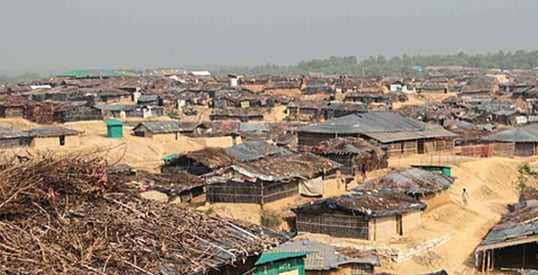Deakin expert available to comment on Myanmar violence anniversary
Media release
A Deakin researcher who has spent considerable time in Myanmar investigating paths to peace within villages impacted by the Rakhine-Rohingya crisis is available to comment on the unresolved situation.
Saturday 25 August marks the one year anniversary of the outbreak of violence that drove 671,500 Rohingya Muslims into Bangladesh in a matter of months. There are now 1.1 million Rohingya refugees living in Bangladesh.
Dr Anthony Ware, a senior lecturer in development studies with Deakin’s School of Humanities and Social Sciences, said narratives about statelessness, denial of citizenship and state oppression of a vulnerable minority were overly-simplistic.
Dr Ware said his research revealed the Rohingya are victims of larger power struggles and also showed the politicisation of ethnicity in Myanmar. He said these issues must be addressed for both the Rohingya and the democratic future of the country.
Dr Ware’s research in the country has also found positive local responses and efforts at peace-building.
Dr Ware was the Director of the Australia Myanmar Institute 2013-2017, and a visiting professor at Manchester University’s Humanitarian and Conflict Response Institute in 2017. He has visited Myanmar since 1992, and visited Rakhine state 13 times for research into this conflict.
He is now available for interviews in print, radio and television media on the unresolved crisis last year.
Quotes attributable to Dr Anthony Ware:
“One year after ethnic cleansing, there are still more questions than answers around what the future holds for these people. What are their prospects of return, and what does the future hold for those Rohingya who are still living in Myanmar? How should the international community respond, and what can we do about it?
“The recent push by some members of the UN Security Council, and others, to refer Myanmar to the International Criminal Court is putting the horse before the cart. Transitional justice may take many forms, should be determined by the people themselves, and should come after some sort of negotiated solution.
“There is no solution to this situation that does not require the cooperation of the Myanmar military and government. There is a real danger that talk now of referrals to the International Criminal Court and so on will only become further obstacles to positive outcomes for the Rohingya themselves.
“As well as working for the urgent return of the Rohingya from Bangladesh, much more must be done to secure the situation for the 600,000 or so Rohingya who remain in Myanmar and to protect these people, strengthen social cohesion, and address the narratives and fears driving this conflict.”
Dr Ware’s new book Myanmar’s ‘Rohingya’ Conflict, co-authored with Deakin colleague Dr Costas Laoutides, will be launched in Melbourne on Monday 27 August.
Share this story

